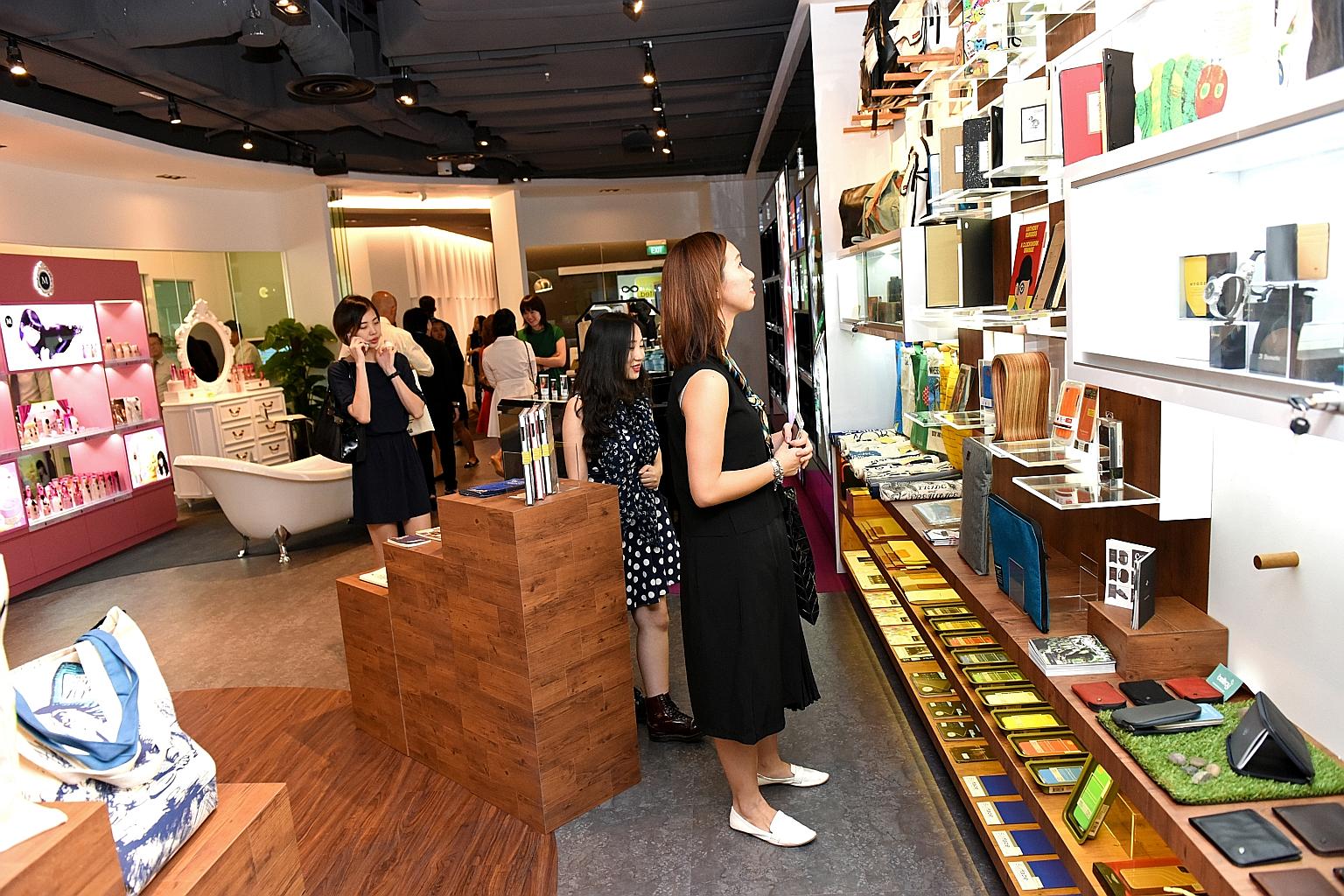Schooling students in science, sense of shopping
Republic Poly's new centre taps tech to help improve retail industry
Sign up now: Get ST's newsletters delivered to your inbox

The new learning facility, which will cater to around 1,000 students every year, looks like a shopping mall, but is actually a classroom.
PHOTO: REPUBLIC POLYTECHNIC
The retail industry looks set for challenging times, with online shopping rising in popularity and vacancy rates in shopping malls inching up in recent months.
But Republic Polytechnic (RP) hopes to give the sector a much- needed boost by tapping smart devices and analytics at its new customer experience laboratories, which it launched yesterday.
The new learning facility, which will cater to around 1,000 students every year, looks more like a shopping mall than a classroom.
It includes a retail lab stocked with lifestyle products and a contact centre that trains students in responding to customer queries on platforms like social media, e-mail and voice calls.
It also has a customer relationship management lab where students can learn how to interact face-to-face with different segments of the consumer market.
The 520sq m facility was built for less than $800,000 and will cater mainly to students from the School of Hospitality's Diploma in Customer Experience Management with Business (DCXB).
Speaking at yesterday's launch, Mr Seto Lok Yin, RP's deputy principal for industry services, said he hopes the centre can be an innovation lab that takes the shopping experience to the next level.
"There are (too many) complaints about shopping here in Singapore, and we can do something about it....(by) putting in technology and innovation," he said.
Some features in the retail lab, which stocks products from industry partners like cosmetics brand ZA and lifestyle retail store Cumulus Nimbus, include analytical tools such as SenSource - a system that can be mounted on the ceiling to record data on footfall.
There is also a point-of-sale system that can be accessed through computers and tablets. Students will use the data for customer analysis and RP is in talks with retail partners about possible collaborations in data analytics research.
Ms Sindu Selvam, a second-year DCXB student, was excited by some of the technology featured in the laboratory, such as an app called OctoCount that helps staff take stock of a product.
"I've worked part-time in retail before and it was a time-consuming process to have to do stock checks manually," said the 19- year-old. "Some customers also gave negative feedback about this process because it was too slow."
However, Mr Irwin Lim, 38, a partner at Known Group, which owns Cumulus Nimbus, said students have to be mindful that the human touch is still important.
"Customer service is not just about checking things off a box," he said. "While interacting with a screen may be second nature to them, they have to understand that not everyone is as comfortable experiencing a retail brand through a screen as they are.
"Technology is just a tool, not the be-all and end-all."


